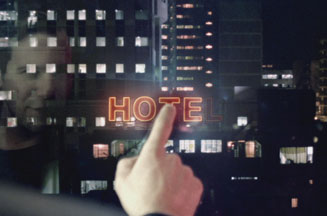
While mobile operators Orange, T-Mobile and O2 have splashed out on significant marketing campaigns in recent weeks, cost savings have been top of Vodafone's agenda.
The brand has been largely absent from TV screens since 2007, when it pushed its ‘Make the most of now' message with a £16m campaign created by Bartle Bogle Hegarty (BBH).
Vodafone admitted then that its brand had lacked emotional engagement. Insiders say it has missed an opportunity to attract younger users, and is perceived as stuffy and corporate.
The brand's sponsorship of the McLaren Mercedes Formula One team came good last year when Lewis Hamilton won the championship, but it is not renewing its £4m-a-year tie-up with the England cricket team, and has ended its title sponsorship of Epsom Downs Racecourse.
It is also axing 500 UK jobs as part of its drive to trim £1bn from its costs over the next year. In addition, it has shifted its global strategic brand business from BBH to WPP, and moved its UK media buying to Carat from OMD.
Vodafone's efforts to keep up with rivals such as O2, which have linked themselves solidly to entertainment events, seem to be too little, too late.
We asked MPG's head of integrated communications, Martyn Stokes, and Steven Hess, managing partner of integrated agency Weapon7, which launched Orange's ‘Good things should never end' work on interactive TV, how Vodafone can return to greatness.
Martyn Stokes head of integrated communications, MPG
Think about Vodafone - what does the word conjure up? Business? Red? Lewis Hamilton? And what does the brand actually stand for in 2009 - emotionally engaging? More like ubiquitous, corporate and cold.
The mobile networks face significant challenges. They are becoming interchangeable utility brands, now that coverage is consistent and price is king. Users care more about their handset.
The mobile is an increasingly powerful device and users are embracing mobile data. Everyone is talking about convergence, but the networks have jumped on trends rather than creating ideas that gain mass traction - Vodafone's deal to allow Twitter users to send and receive updates via SMS is a case in point.
The company has attempted to connect with music fans via Vodafone Live, but to me it feels like just another sponsorship strand.
O2 has proved that consistent customer-focused communication pays dividends and T-Mobile's recent foray into user-generated content with ‘Life's for sharing' is admirable. Vodafone's ‘Time theft' ad campaign, however, felt like safe, multi-territory advertising relying on creative treatment to communicate a generic category benefit about mobile data services.
Remedy
- Relax and let go - lose the corporate baggage, show a human side.
- Make Vodafone customers feel in control, invest in communication that builds the customer community.
- Make a play. If Vodafone wants to ‘own' music, why didn't it buy Last.fm or launch Spotify?
- The million-dollar question is who will own the future - network, handset or content owner?
Steven Hess managing partner, Weapon7
I never had any problems as a Vodafone customer. It has good coverage, a solid mobile product and I'd experienced good customer service. I've also been a Vodafone shareholder. But when my contract ended, my allegiance wandered elsewhere. It shouldn't have, but it did.
Its strategy appears to be maintaining a price premium and mass-market share. But in these times of change, is big good? You notice an absence more when the void is bigger, and Vodafone seems to be in retreat, pulling back on advertising, sponsorship (F1 doesn't deliver the special brand experience of The O2 or the reward of Orange Wednesdays) and search (it is not in the top three natural search results for ‘mobile phones').
Vodafone has been on the end of negative reports about redundancy and marketing cuts, and its retail and digital media experiences are a patchwork of different deals and handsets.
Its market is changing fast. Broadband, landlines, wi-fi and exclusive handsets are ever-more important, and data connections will fundamentally change the business model. Being able to support a significant price premium in this context will require a strong brand vision, which Vodafone's is not.
Remedy
- Re-establish the brand. Being big and reliable is not enough. Inspire people to communicate.
- Brands that can invest during a recession emerge stronger. Ensure that all assets work together across the customer journey.
- Set out a clear product development cycle. Decide what kind of service the brand should provide to customers, but don't get dragged into a price war - the current business model will not support it.

